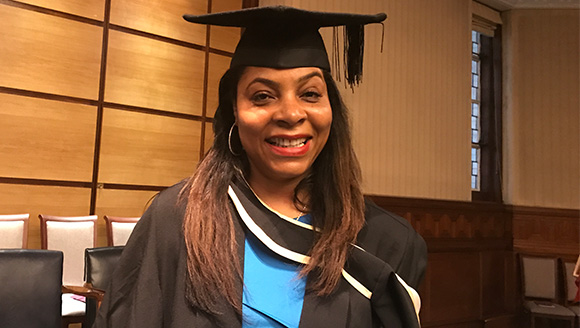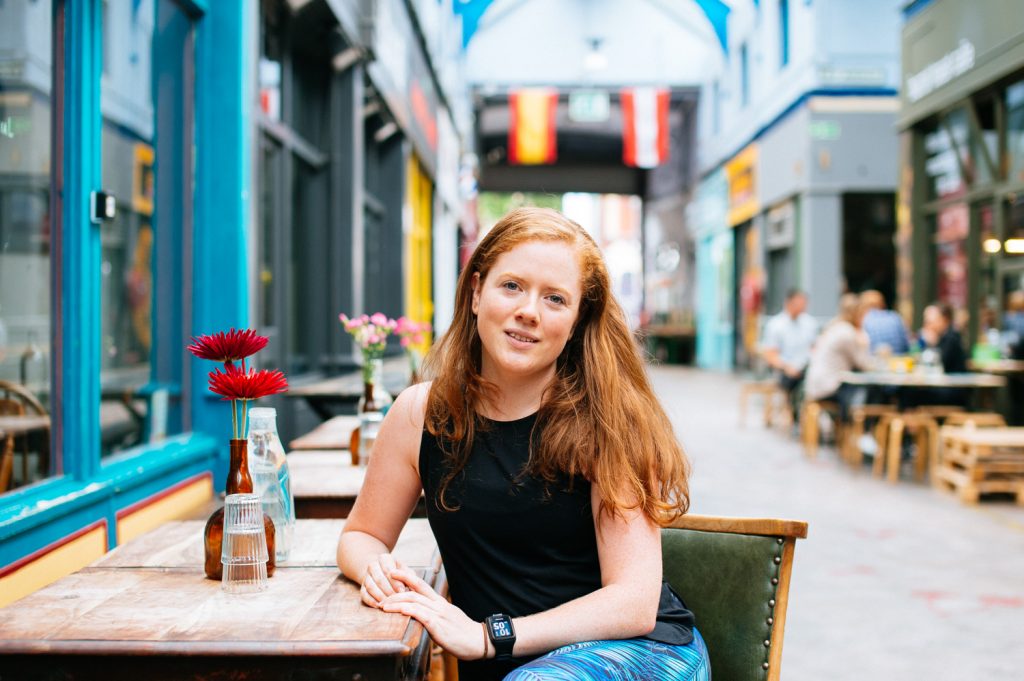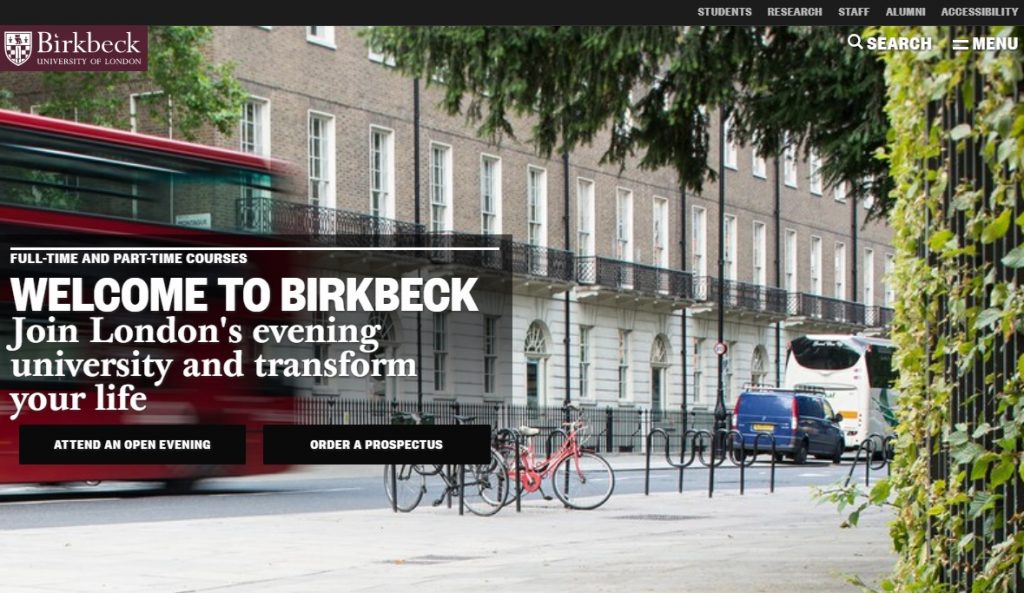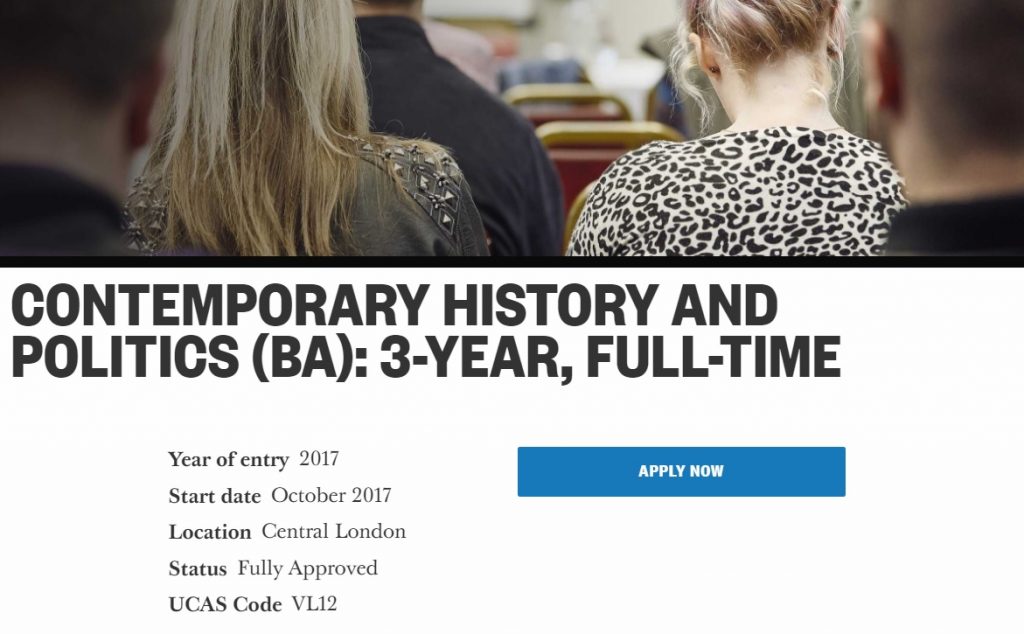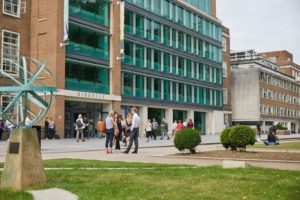Current and former students of Birkbeck’s MSc Bio-business discuss how the course, which focuses on entrepreneurship and business in the bioscience industry, has impacted their lives and careers.
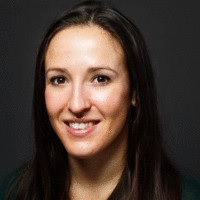 Sophie DeFries, Bio-business alumna: I obtained my BSc from St Andrews in Cell/Molecular Biology then went on to receive an MSc from London School of Hygiene and Tropical Medicine in Medical Microbiology. My post-university work experience has been in market research and consulting in the healthcare industry. I began at a market research agency in the oncology business unit solving pharmaceutical client brand strategy needs. Currently, I work for a marketing and sales management consultancy where client projects have a wide scope of therapy areas, drugs, and business objectives.
Sophie DeFries, Bio-business alumna: I obtained my BSc from St Andrews in Cell/Molecular Biology then went on to receive an MSc from London School of Hygiene and Tropical Medicine in Medical Microbiology. My post-university work experience has been in market research and consulting in the healthcare industry. I began at a market research agency in the oncology business unit solving pharmaceutical client brand strategy needs. Currently, I work for a marketing and sales management consultancy where client projects have a wide scope of therapy areas, drugs, and business objectives.
I was drawn to Bio-business because it’s meant I’ve been able to transition between laboratory-based sciences to commercial/business world of science and healthcare. It’s been useful for figuring out what specifically in the bio-business industry is appealing to me. The number one benefit, I would say, is that the course connected a great group of like-minded, smart, and driven classmates, and London is a perfect city to study in – international and diverse, lots of jobs and networks, and a fun atmosphere.
Developing my business skills has been very useful for working in consulting and understanding business jargon. The fact that the course has a connection between business and science has allowed me to analyse the biotech and pharma market independently and with confidence.
 Alba Ruzafa Martín, Bio-business student: I studied Biology back home in Madrid and after working in a lab for one year I decided that “lab-life” wasn’t for me. Then I decided that industry would be an interesting path to follow, so I started to look for a master’s and I found Bio-business at Birkbeck. For me, it was the perfect option. Not only because of the modules on offer but also because I needed (and still do need) to work full time.
Alba Ruzafa Martín, Bio-business student: I studied Biology back home in Madrid and after working in a lab for one year I decided that “lab-life” wasn’t for me. Then I decided that industry would be an interesting path to follow, so I started to look for a master’s and I found Bio-business at Birkbeck. For me, it was the perfect option. Not only because of the modules on offer but also because I needed (and still do need) to work full time.
For the first year and a half of the master’s I was a sales assistant, but the experience and knowledge I gained through the course has enabled me to get an internship in Imperial Innovations at Imperial College London, where I have been working for the last almost five months.
The best thing about studying in London for me is the number of different people you get to know. You learn something new every day, you can go to a new place every time you go out. I am not going to lie to you, the city is freaking expensive and sometimes it gets a bit hard. But for me, it has been totally worth it.
 Igor Smyriov, Bio-business alumnus: I had been looking for a master’s degree in business with a focus on biotech and life science for more than two years before I found the MSc Bio-business at Birkbeck. It had everything I was looking for: the option to study part-time in the evening, the central London location, and a huge variety of modules to study.
Igor Smyriov, Bio-business alumnus: I had been looking for a master’s degree in business with a focus on biotech and life science for more than two years before I found the MSc Bio-business at Birkbeck. It had everything I was looking for: the option to study part-time in the evening, the central London location, and a huge variety of modules to study.
I was surprised to find so many highly regarded industry professionals, as well as Birkbeck academics, involved in delivering the modules and have opportunities to network with them.
The opportunity to learn entrepreneurial business skills in the life sciences sector was essential to my choice to study Bio-business. My degree has made me much more confident in understanding the business area of the subject. I was offered a few opportunities to join start-ups as a business advisor, and now have secured a role as a manager, so I have left my lab role.
London is a hub for all-around development and all industries. All world leading companies have offices in London or around it. You have the opportunity to meet and establish good relationships with international professionals coming to London for conferences or meetings. And because Birkbeck students study in the evenings, you can be involved in daily London life.
 Romina Durigon, Bio-business student: I was drawn to Bio-business by the desire to gain a deeper knowledge of the biotech and pharma sectors while networking and connecting with some of the most important companies and not-for-profit organisations in the UK.
Romina Durigon, Bio-business student: I was drawn to Bio-business by the desire to gain a deeper knowledge of the biotech and pharma sectors while networking and connecting with some of the most important companies and not-for-profit organisations in the UK.
I also wanted to understand how innovation shapes science and technology or vice-versa, as well as to study entrepreneurship finance, entrepreneurship innovation and management. This program is enabling me to write a business plan, to learn more about venture capitalist firms, investments, and other major factors impacting the growth or the failure of a business.
Studying both life sciences and business skills has enabled me to explore with more awareness of the various market opportunities and thus thinking more carefully about my next job. Dr Renos Savva, the Director of MSc Bio-Business knows and understands entrepreneurship very well and very often advises us about entrepreneurial skills and attitude. His knowledge together with his previous entrepreneurial biotech experience and advice are among the most important assets of this master’s. I would highly recommend the master’s if you are entrepreneurial or want to be an entrepreneur.
Bio-business students have the opportunities to know about the latest innovative technologies used in academia, biotech and pharma sectors. They have the chance to apply for internships in various companies and thus learn new skills while studying for their master. More importantly, students will have the opportunity to liaise with the speakers invited to give a seminar and attend career track events where they can connect directly with employers and entrepreneurs.
The master’s has helped me to create a larger network and build new relationships with people that otherwise I would not be able to be in contact with or meet. By liaising with them I have the opportunity to discuss jobs’ opportunities, ask for advice or connect with someone else working in the sector that I most interested in.
Find out more and apply to study MSc Bio-business at Birkbeck.




